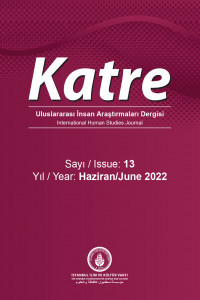Bir Ömrün Değişmez Prensibi: Müsbet Hareket
Bediüzzaman Said Nursi’nin Risale-i Nur’u yazdığı ve neşrettiği dönem dine karşı her türlü baskının yapıldığı bir dönemdi. Böyle bir dönemde yapılacak olan iman hizmetinde daha hassas davranmak gerekiyordu. Bu hassasiyetin bir neticesi olarak Nursi iman hizmetinde müsbet hareket etmeyi temel bir prensip olarak görmüştür. Müsbet hareket bütün olumlu, uygun, yapılması memnuniyet verici olan davranışları içine alır. Menfi hareket ise müsbet hareketin zıddı olup olumsuz, fert ve toplum için uygun olmayan, yapılması kimseyi memnun etmeyen hatta kişilere veya topluma zarar veren fiillerden ibarettir. Müsbet hareketin manevi esası şefkattir. Tebliğ vazifesi yapanlar bu asrın bir gereği olarak görevlerini yumuşak sözle yapmalıdırlar. Ancak tebliğ vazifesini yapmak kuldan, muvaffak olmak Allah’tandır. Hizmet ederken istenen sonucun mutlaka gerçekleşip gerçekleşmediğine bakılmamalıdır. İman-Kur’an hizmetinde bulunurken kişiler ne kadar zulüm ve sıkıntı görürlerse görsünler müsbet hareket gereği ülke içinde kaba kuvvete başvurmamalıdırlar. Ayrıca hizmette muvaffakiyetin bir şartı da din hizmeti yapanların ittifak etmeleridir. Dini gruplar arasında ittifakın sağlanması da müsbet harekete bağlıdır. Said Nursi bir ömür boyu müsbet hareket etmeyi kendine düstur edinmiş; Nur talebelerini asayişi temin etmenin manevi bekçileri olarak görmüştür.
Anahtar Kelimeler:
Müsbet hareket, menfi hareket, tebliğ, şefkat, asayiş, ittifak, muvaffakiyet
A Constant Principle of Life: Positive Action
In the time in which Said Nursi’s Risale-i Nur was being written and disseminated there were all sorts of oppressions being inflicted against religion. With regard to that period, a service towards Belief with even greater care and sensitivity had to be conducted. As a result of that sensitive and careful approach, Nursi emphasized “positive action” as a foundational principle of the service of belief. Positive action embodies all positive and appropriate conducts and is a purveyor of contentedness. In the case of negative action - it works against the attributes of positive action and is composed of negativity, it is neither appropriate for the individual or the society, such action pleases and satisfies nobody and moreover it harms people and the society. The inner essence of positive action is compassion. Those committed to this task must use gentle worlds as is particularly required by this century. The working is from human being, but the success comes from Allah. While doing such service one must definitely avoid looking to see if its’ results will be realised or not. While doing positive action; if a person observes oppression and tribulation then regardless of it’s severity he must not resort to violence or force. This is a requirement of doing positive action within the domestic sphere. Additionally, a condition pertaining to the success of faith-service must come from the alliance between those who are carrying it out. Alliance between religious groups is dependent on positive action. Throughout his life Said Nursi applied positive action as a key principle; and he has seen the Nur students as spiritual guardians who provide security and public order.
Keywords:
Positive Action, negative action, proclaim, compassion, peace, alliance,
___
- 2
- ISSN: 2146-8117
- Yayın Aralığı: Yılda 2 Sayı
- Başlangıç: 2016
- Yayıncı: İstanbul İlim ve Kültür Vakfı
Sayıdaki Diğer Makaleler
Bir Mekân Hizan: İlim ve Âlim Havzası
Bir Toplantı Sempozyum Raporu Din, Bilim ve Felsefe İlişkisi: Risale-i Nur Yaklaşımı Sempozyumu
Merkeziyet ve Adem-i Merkeziyet Tartışması Bağlamında Kürt Meselesine Müsbet Bakış
Bediüzzaman’ın Düşüncesinde Cemaatlerin Uyması Gereken Müsbet Hareket İlkeleri
Risale-i Nur Işığında Terör ve Kitle İmha Silahları
Toplumu Huzura Götüren Yol: Müsbet Hareket
Bir Ömrün Değişmez Prensibi: Müsbet Hareket
Bediüzzaman’ın Müdafaalarında Müspet Hareket ve Fedakârlık
Bir Kitap Türkiye’de Din ve Toplumsal Değişme Bediüzzaman Said Nursi Olayı
